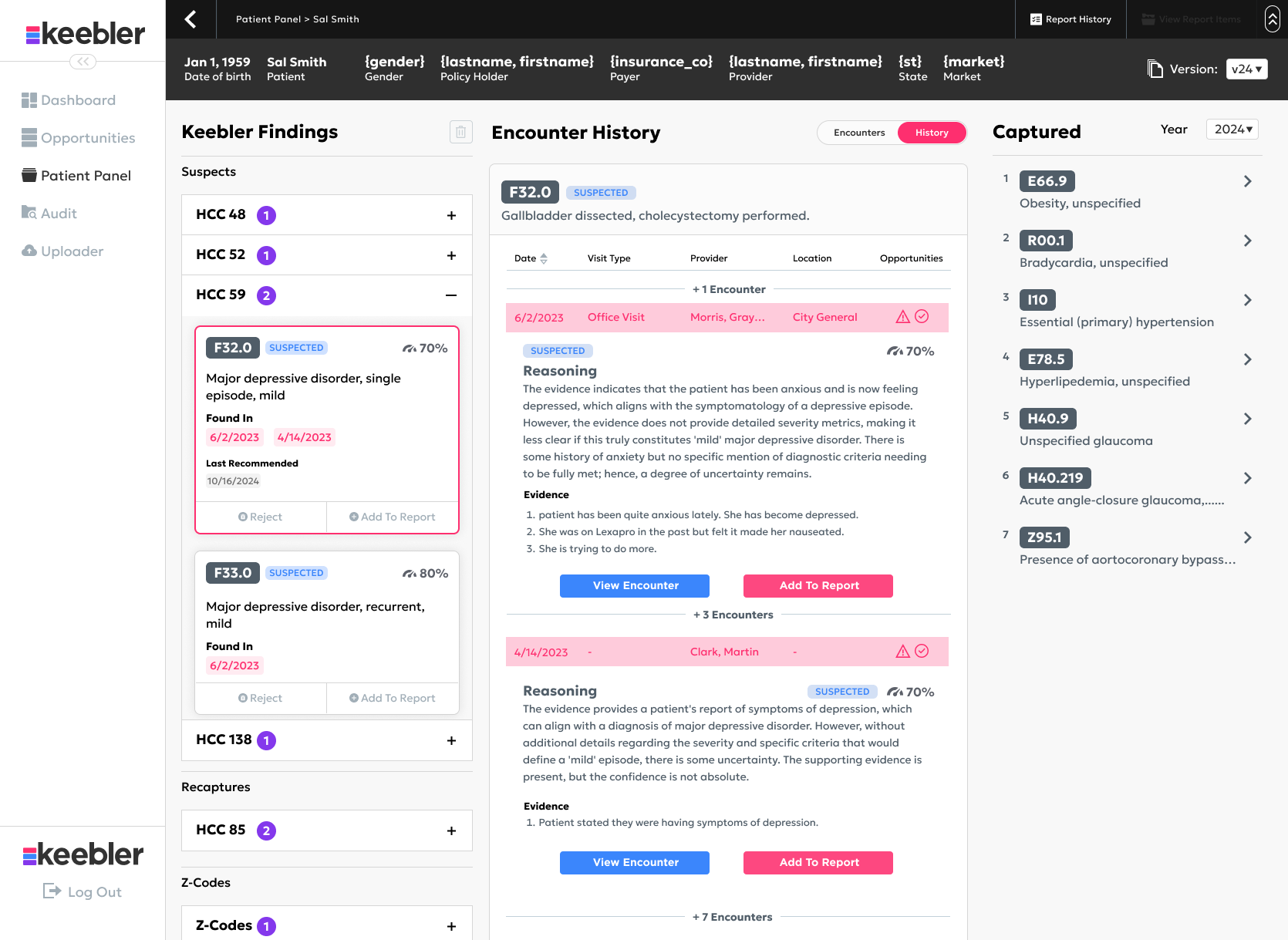Keebler Health needed to transform messy medical records into clean, actionable risk insights quickly. Using the Aidbox FHIR Platform, they developed a high-performance, FHIR-native platform that delivers auditable AI magic.
Keebler Health was founded in 2023 by a team of healthcare idealists and AI optimists who'd had it with broken back office practices, and risk adjustment. They build tools for value-based care organizations who are tired of coding and documentation chaos, missing chronic disease burden, and drowning in unusable data.
Keebler's AI-native platform reads clinical documentation like a seasoned coder, finds the gaps, and flags missed HCCs. It's fast, interpretable, and plugs straight into your EMR. No black boxes. No nonsense.
They assist provider organizations to:
If you're trying to do risk adjustment better with fewer spreadsheets, fewer headaches, and more confidence — you're Keebler's people.
Risk adjustment today is a mess. There's too much data, not enough time, and high-stakes reimbursement tied to coding accuracy. That's a recipe for burnout, under-coding, and compliance risk.
Keebler was built to solve two problems at once:
Under-coding
Millions of dollars in risk went unreported because conditions weren't captured correctly.
Team overload
Clinicians were burned out, and coders were juggling spreadsheets like it's 1999.
As Keebler scaled and started onboarding more customers, they looked under the hood of these different healthcare data set ups, they found one thing was more or less consistent: a total lack of consistency. Each customer can have a slightly different EMR setup, data export process, or FHIR conformance level, and so Keebler had to do a lot of customization. As a result, they needed infrastructure that could flex, move fast, and actually work across that chaos.
Keebler chose the Aidbox FHIR server as their core database and FHIR engine, a decision that has proven highly effective.
Here’s how the system works:
Keebler Health's platform is built using Python, AWS, Kubernetes, Terraform, and Argo, with Aidbox serving as the core engine powering their system. Aidbox enables Keebler Health to maintain a FHIR-native architecture, scale efficiently, and focus on enhancing healthcare data processing and patient insights. The integration with Aidbox is so seamless that it often goes unnoticed — an unusual but valuable compliment.
Since launching in early 2024, Keebler has onboarded numerous prestigious clients and identified missed coding opportunities that ensure patients receive appropriate support.

For full-risk value-based care providers, key benefits include:
Most importantly, users report that the platform fits seamlessly into real-world workflows and equips population health teams with actionable insights.
Aidbox provided a reliable, developer-friendly foundation, allowing Keebler to build a flexible AI platform in a complex, high-stakes environment without reinventing FHIR infrastructure.
In summary, Keebler built an advanced risk adjustment engine enabled by Aidbox, allowing users to improve efficiency and accuracy — and ultimately get home on time.
Get in touch with us today!